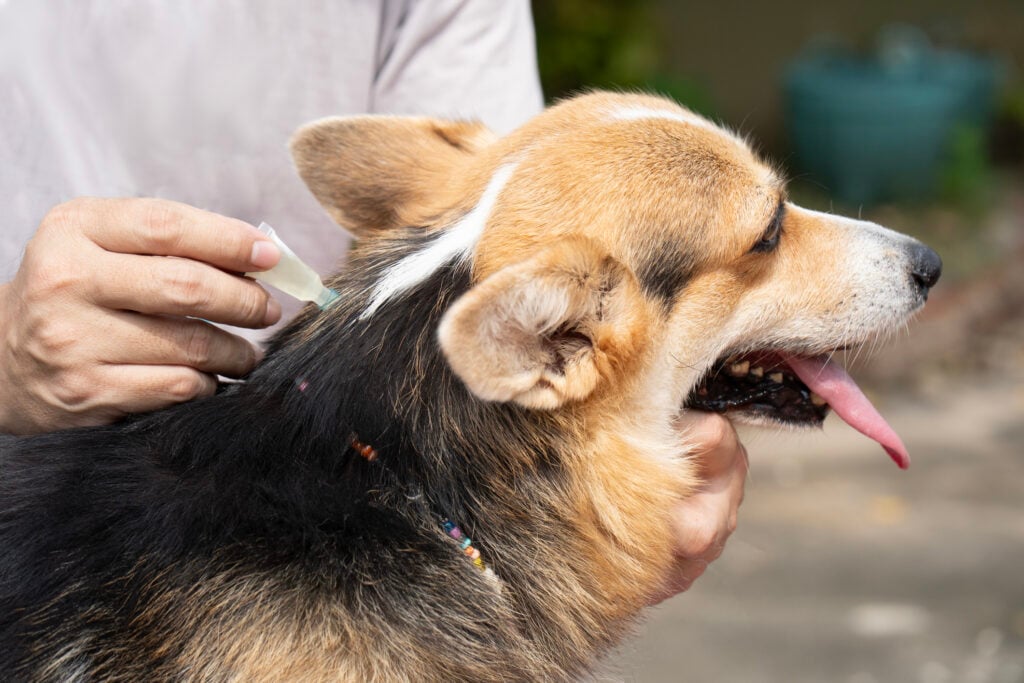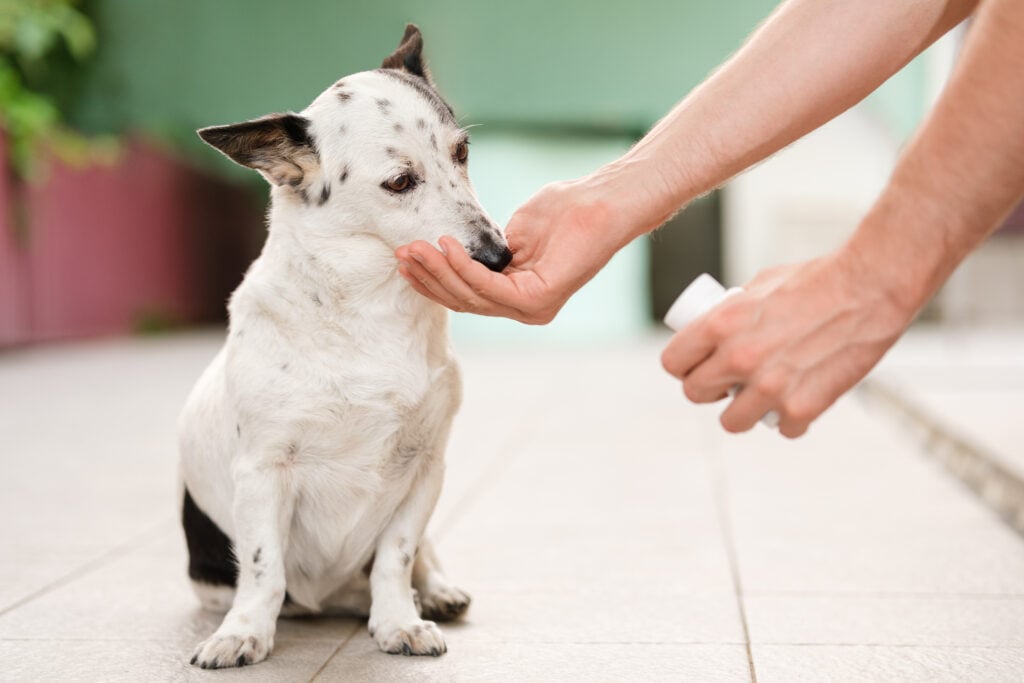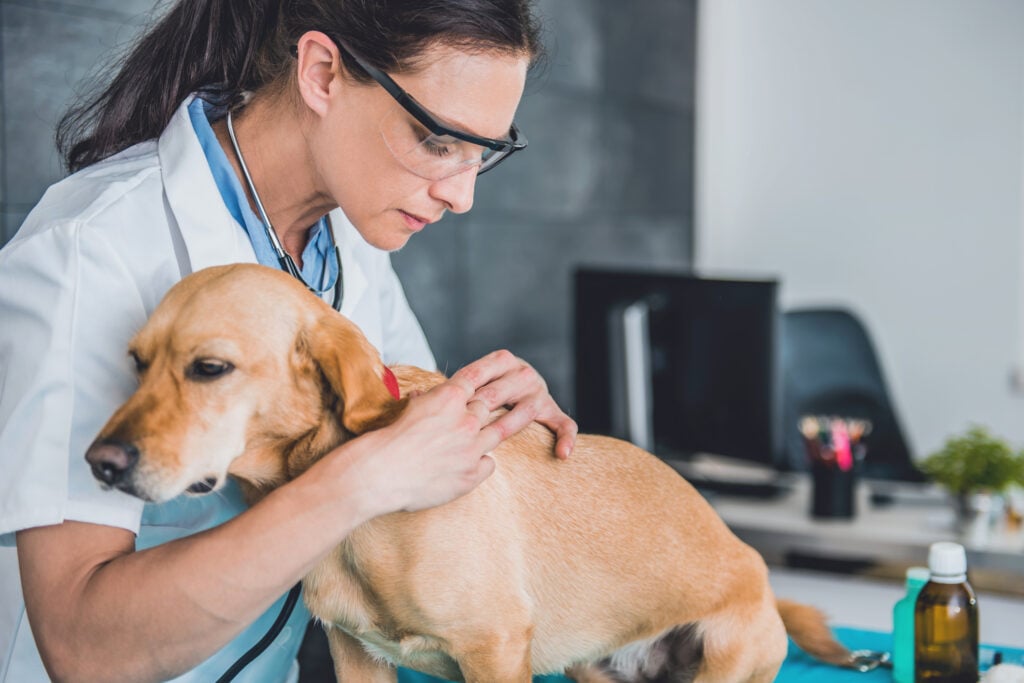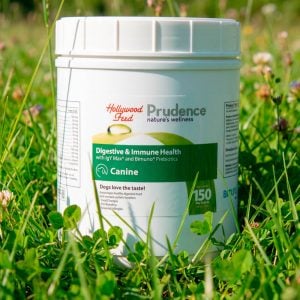If your dog is constantly scratching, licking, or biting their skin, you’re not alone. Many pet parents ask: “Why is my dog itching so much?” While the causes of itchiness can vary, two of the most common culprits are fleas and skin allergies. Fortunately, there are ways to help your pup feel more comfortable—starting with prevention, proper treatment, and targeted supplements.
In this blog, we’ll break down the reasons dogs itch, how to identify whether fleas or allergies are to blame, and what you can do to support your dog’s skin health with natural, effective solutions—like skin & allergy supplements from Hollywood Feed.
Common Causes of Your Dog Itching
Itching, medically known as pruritus, can stem from many causes. Here are some of the most common reasons your dog may be scratching:
-
Flea bites or infestations
-
Environmental allergies (pollen, dust, mold)
-
Food allergies or sensitivities
-
Dry or flaky skin
-
Skin infections (bacterial or fungal)
-
Reaction to grooming products or household cleaners
Before jumping to conclusions, it’s important to observe your dog’s behavior and check their skin and coat closely.
First Things First: Have You Treated for Fleas?

Even if you don’t see fleas, it doesn’t mean your dog is flea-free. Fleas are sneaky pests that can cause intense itching, especially in dogs who are allergic to flea saliva.
Signs of Fleas:
-
Constant scratching, especially around the base of the tail
-
Red, irritated skin or hot spots
-
Tiny black specks (flea dirt) in the fur
-
Excessive licking or biting
What You Can Do:
-
Use a flea preventative monthly
-
Treat your home and yard for fleas
-
Bathe your dog with a gentle flea shampoo
-
Use a flea comb daily to check for signs of fleas
Hollywood Feed carries vet-trusted flea treatments and natural flea repellents to help protect your pet year-round with no prescription required.
If It’s Not Fleas, Consider Allergies
If you’ve ruled out fleas, your dog’s itching may be caused by skin allergies. Allergic reactions in dogs can come from food, environmental triggers, or even materials like grass or carpet fibers.
Common Allergy Symptoms:
-
Persistent itching or licking
-
Red or inflamed skin
-
Hair loss or thinning coat
-
Recurring ear infections
-
Paw chewing or excessive paw licking
How Skin & Allergy Supplements Can Help

Adding a skin & allergy supplement to your dog’s daily routine can help soothe itching and support skin barrier health from the inside out. Supplements can reduce inflammation, boost immune response, and improve coat condition.
Ingredients to Look For:
-
Omega-3 fatty acids (EPA & DHA): Reduce inflammation and promote healthy skin
-
Quercetin: A natural antihistamine known as “nature’s Benadryl”
-
Probiotics: Support gut health, which is closely linked to allergy response
-
Colostrum: Helps regulate immune response to allergens
-
Vitamin E & Zinc: Promote skin healing and coat shine
Hollywood Feed offers a curated selection of skin & allergy supplements made with clean, effective ingredients—including soft chews, powders, and liquids from trusted brands.
When to See a Vet

If your dog’s itching is severe, persistent, or accompanied by open sores or changes in behavior, it’s important to consult your veterinarian. Your vet can run tests to determine if the cause is parasitic, bacterial, or allergic and help you come up with a treatment plan.
Recap: Help Your Dog Stop the Itch
Your dog deserves to feel their best—and scratching all day (and night!) can take a toll. The good news? Many causes of itching are treatable at home with the right approach.
Key Takeaways:
-
Check for fleas first—treat even if you don’t see any.
-
Consider environmental or food allergies as common culprits.
-
Add a skin & allergy supplement to your dog’s routine for internal support.
-
Look for anti-inflammatory ingredients like omega-3s, probiotics, and quercetin.
-
Visit your vet if the itching persists or worsens.
Q&A: Dog Itching? Have You Treated for Fleas or Tried a Skin & Allergy Supplement?
Q: Why is my dog constantly scratching?
A: The most common causes are fleas, environmental allergies, or skin sensitivities. Start by checking for fleas, then consider allergy support.
Q: Can I give my dog supplements for skin allergies?
A: Yes! Supplements with omega-3s, quercetin, and probiotics can help reduce itching and support overall skin health.
Q: What if flea treatment doesn’t work?
A: Persistent itching after flea treatment could mean your dog has allergies or a skin infection. Speak to your vet for diagnosis and care.
Q: How long do skin supplements take to work?
A: Most dogs show improvement in 3–6 weeks. Consistency is key—make it part of your daily routine.
Q: Where can I find safe, effective supplements?
A: Hollywood Feed carries expert-approved skin & allergy supplements both in-store and online. Ask a Feed Team Member for personalized recommendations.
For more pet health tips and expert product advice, visit the Hollywood Feed Blog. Stop by your neighborhood store or shop online to explore flea prevention, allergy-friendly foods, and supplements that support your dog from the inside out.








